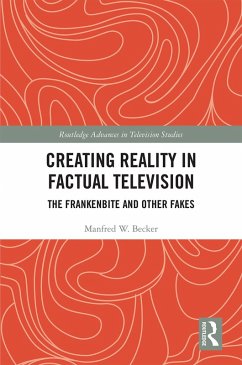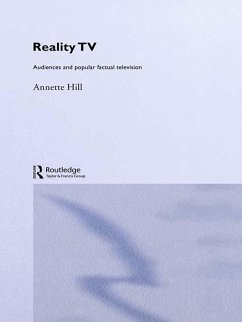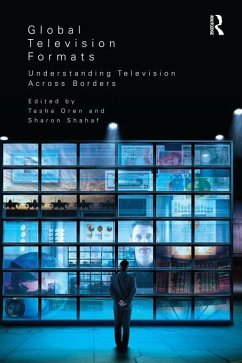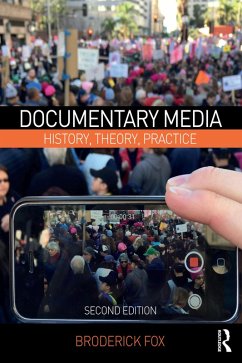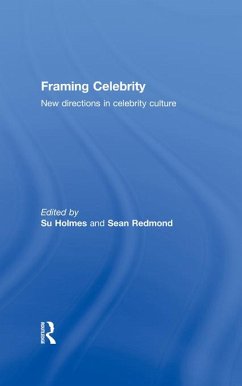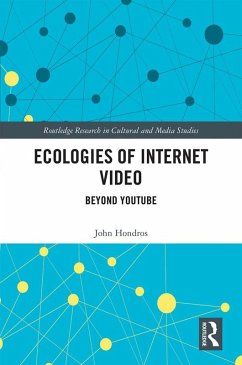
Creating Reality in Factual Television (eBook, ePUB)
The Frankenbite and Other Fakes
Versandkostenfrei!
Sofort per Download lieferbar
41,95 €
inkl. MwSt.
Weitere Ausgaben:

PAYBACK Punkte
21 °P sammeln!
Creating Reality in Factual Television analyzes the uneasy interaction between economics, culture, and professional ethics in reality and documentary television storytelling. Through the "frankenbite," an editorial tool that extracts and re-orders the salient elements or single words of a statement, interview, or exchange into a revealing confession or argument, the book explores how and why editors manipulate truth in factual television.The author considers how the editing of documentary television is increasingly following reality television's dictate to entertain instead of inform, how the ...
Creating Reality in Factual Television analyzes the uneasy interaction between economics, culture, and professional ethics in reality and documentary television storytelling. Through the "frankenbite," an editorial tool that extracts and re-orders the salient elements or single words of a statement, interview, or exchange into a revealing confession or argument, the book explores how and why editors manipulate truth in factual television.
The author considers how the editing of documentary television is increasingly following reality television's dictate to entertain instead of inform, how the "real" and the "truth" fall victim to the demand to "tell entertaining stories," and how editors must compromise their professional ethics as a result. Drawing on interviews with 75 North American and European editors that explore their experiences and opinions of reality and documentary television practices, and their views on their responsibilities and loyalties in the field, Creating Reality in Factual Television illuminates the real and potential ethical dilemmas of editorial decision making, the context in which decisions are made, and how editors themselves validate the editing choices to themselves and others.
Addressing a dramatic development in contemporary media ecology - the age of "alternative facts" - this book is a useful research tool for scholars and students of documentary film, media literacy, genre studies, media ethics, affect theory, and audience perception.
The author considers how the editing of documentary television is increasingly following reality television's dictate to entertain instead of inform, how the "real" and the "truth" fall victim to the demand to "tell entertaining stories," and how editors must compromise their professional ethics as a result. Drawing on interviews with 75 North American and European editors that explore their experiences and opinions of reality and documentary television practices, and their views on their responsibilities and loyalties in the field, Creating Reality in Factual Television illuminates the real and potential ethical dilemmas of editorial decision making, the context in which decisions are made, and how editors themselves validate the editing choices to themselves and others.
Addressing a dramatic development in contemporary media ecology - the age of "alternative facts" - this book is a useful research tool for scholars and students of documentary film, media literacy, genre studies, media ethics, affect theory, and audience perception.
Dieser Download kann aus rechtlichen Gründen nur mit Rechnungsadresse in A, B, BG, CY, CZ, D, DK, EW, E, FIN, F, GR, HR, H, IRL, I, LT, L, LR, M, NL, PL, P, R, S, SLO, SK ausgeliefert werden.




